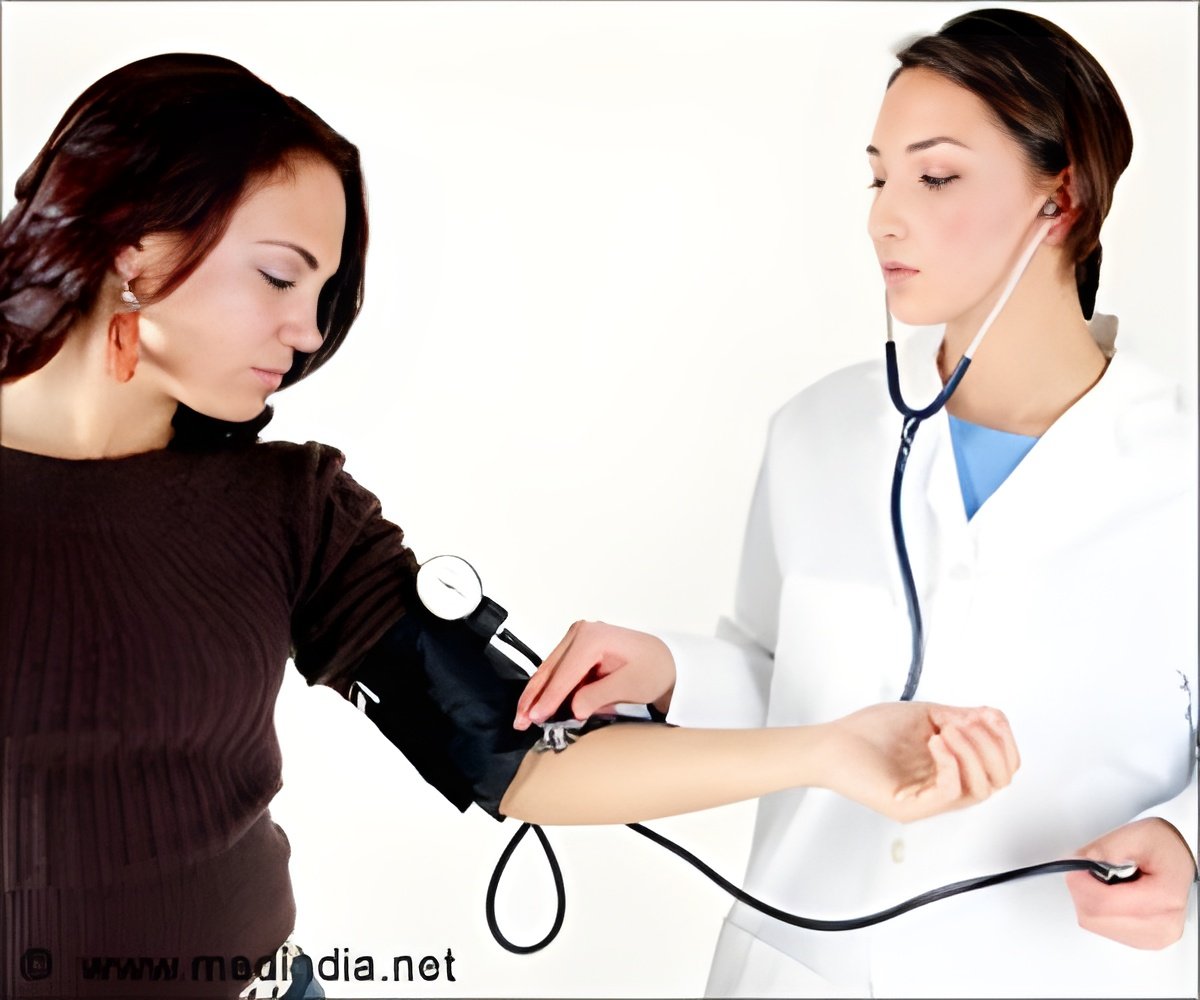High blood pressure (hypertension) in the first trimester increases the risk for blood pressure disorder later in pregnancy, finds a new study.

‘Even a slightly elevated blood pressure in the first trimester raises the risk for blood pressure disorder later in pregnancy.’
Read More..




The results suggest that blood pressure readings lower than those traditionally used to identify women as having high blood pressure may indicate a higher risk for a hypertensive disorder of pregnancy, such as gestational high blood pressure, which develops after the 20th week of pregnancy, and preeclampsia, or high blood pressure and protein in the urine. Both conditions increase the risk of stroke in the mother and for stillbirth, preterm birth, and low birth weight. Preeclampsia also increases the risk for life-threatening eclampsia seizures for the mother.Read More..
The researchers analyzed data from Monitoring Mothers-to-Be (nuMoM2b), a study which sought to identify risks for birth and pregnancy complications in first-time mothers. For roughly 8,900 women, researchers compared blood pressure readings in the first and second trimesters of pregnancy to blood pressure status in the remainder of the pregnancy. None of the women had stage 2 high blood pressure (140/90 mmHg or higher) at the time they entered the study.
Of women who had elevated blood pressure in the first trimester (120/80 to 129/80 mmHg), 30.3% developed a hypertensive disorder of pregnancy, a 42% higher risk than for women with normal blood pressure (less than 120/80 mmHg). Of women with stage 1 high blood pressure (130/80 to 130/89 mmHg), 37.8% developed a hypertensive disorder of pregnancy, an 80% greater risk than women with normal blood pressure. Stage 1 high blood pressure was associated with more than 2.5 times the risk for preeclampsia.
An increase in blood pressure between the first and second trimester also increased the risk of a hypertensive disorder of pregnancy. For example, even among women with normal blood pressure in the first trimester, an increase in systolic pressure (the top number) was associated with a 41% higher risk of any hypertensive disorder of pregnancy, compared to women with a decrease in systolic pressure between the first and second trimester. An increase in diastolic pressure (the bottom number) was associated with a 23% higher risk of a hypertensive disorder, compared to women who had a decrease in diastolic pressure during this time.
Source-Eurekalert















